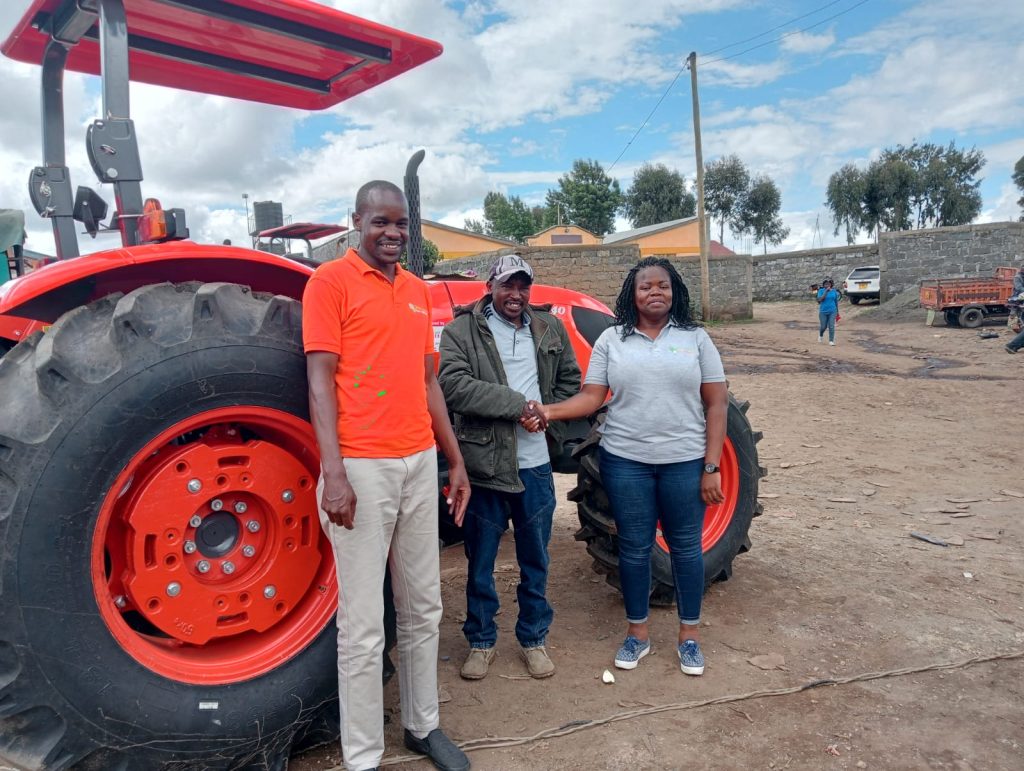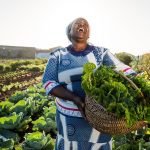
Kenya boasts vast tracts of arable land, yet paradoxically, we struggle to produce enough food to feed our population. This agricultural shortfall stems from the subdivision of large, fertile land into small, economically unviable units. Most of these small-scale farmers rely on traditional farming tools, like hoes, which limit productivity and efficiency. To transform Kenya’s agricultural landscape and ensure food security, it is imperative to professionalize farming by embracing mechanization.
The State of Kenyan Agriculture
Despite our potential, Kenya’s agricultural sector faces significant challenges. The fragmentation of arable land into small plots hampers large-scale production. Subsistence farming dominates, with many farmers using outdated, labor-intensive methods. This results in low yields and inefficiency, making it difficult to meet the country’s food demands.
Small-scale farmers, who form the backbone of our agricultural sector, often lack access to modern farming equipment. This situation traps them in a cycle of low productivity and poverty. To break this cycle, we must shift towards mechanized farming, which promises higher yields, better efficiency, and increased profitability.
The Need for Mechanisation
Mechanization is the cornerstone of modern agriculture. It involves the use of machinery and technology to perform farming tasks, reducing the reliance on manual labor and enhancing productivity. For Kenya, this means moving away from hand tools and animal-drawn implements to tractors, combine harvesters, and irrigation systems.
Mechanization offers numerous benefits:
- Increased Productivity: Machines can work faster and more efficiently than human labor. This leads to higher crop yields and more efficient use of land and resources.
- Economic Viability: By pooling resources and forming cooperatives, small-scale farmers can collectively hire or purchase machinery. This makes mechanization affordable and practical, even for those with limited land.
- Modern Agricultural Practices: Embracing mechanization goes hand-in-hand with adopting modern farming techniques. This includes precision farming, efficient water management, and the use of high-yield crop varieties.
- Labor Reallocation: Mechanization frees up labor, allowing people to engage in value-added activities such as processing, packaging, and marketing agricultural produce. This creates new job opportunities in higher-value sectors, contributing to economic growth.
Role of Agricultural Extension Officers
Agricultural extension officers play a pivotal role in promoting mechanization. They provide essential training and support to farmers, helping them understand the benefits of modern farming practices and how to use new machinery effectively. By working closely with farmers, extension officers can facilitate the transition to mechanized agriculture, ensuring that it is implemented correctly and sustainably.
EFKen’s Commitment to Mechanisation
At EFKen, we are dedicated to leading the charge towards agricultural mechanization in Kenya. We recognize that access to modern farming equipment is crucial for transforming the sector. Through our asset finance solutions, we help organized communal enterprises acquire the necessary machinery to boost productivity and profitability.
Our services include:
- Asset Finance in Kenya: Providing affordable financing options for farmers to purchase tractors, irrigation systems, and other essential agricultural equipment.
- Tractor Finance: Enabling farmers to acquire tractors, which are vital for efficient land preparation and cultivation.
- Mechanization Support: Offering guidance and support to farmers on the best practices for using and maintaining agricultural machinery.
The Path to Self-Sufficiency
Mechanization is not just about increasing production; it is about creating a sustainable agricultural ecosystem. By harnessing larger tracts of land for productive agriculture, we can achieve economies of scale. This will lower production costs and make farming more profitable, encouraging more investment in the sector.
Mechanization also facilitates irrigation, a critical component for transforming semi-arid and arid regions into productive farmlands. Countries like Israel and Egypt have demonstrated how innovative irrigation techniques can turn deserts into thriving agricultural hubs. Kenya can follow suit by leveraging mechanization to make better use of our semi-arid lands, turning them into valuable agricultural assets.
Conclusion
Mechanization is the key to unlocking Kenya’s agricultural potential. By transitioning from traditional farming methods to modern, efficient practices, we can increase productivity, ensure food security, and boost economic growth. At EFKen, we are committed to supporting this transformation by providing the necessary financial solutions and expertise.
Through collaborative efforts involving farmers, cooperatives, extension officers, and financial institutions, we can build a robust, mechanized agricultural sector that meets the needs of our growing population. The future of Kenyan agriculture lies in embracing mechanization, and together, we can achieve a self-sufficient and prosperous nation.
Asenath is an asset finance specialist and is Business Development Manager ,Kenyan mid-Rift (Nakuru Region) , EFKen Leasing – an agricultural value chain asset financing company.




